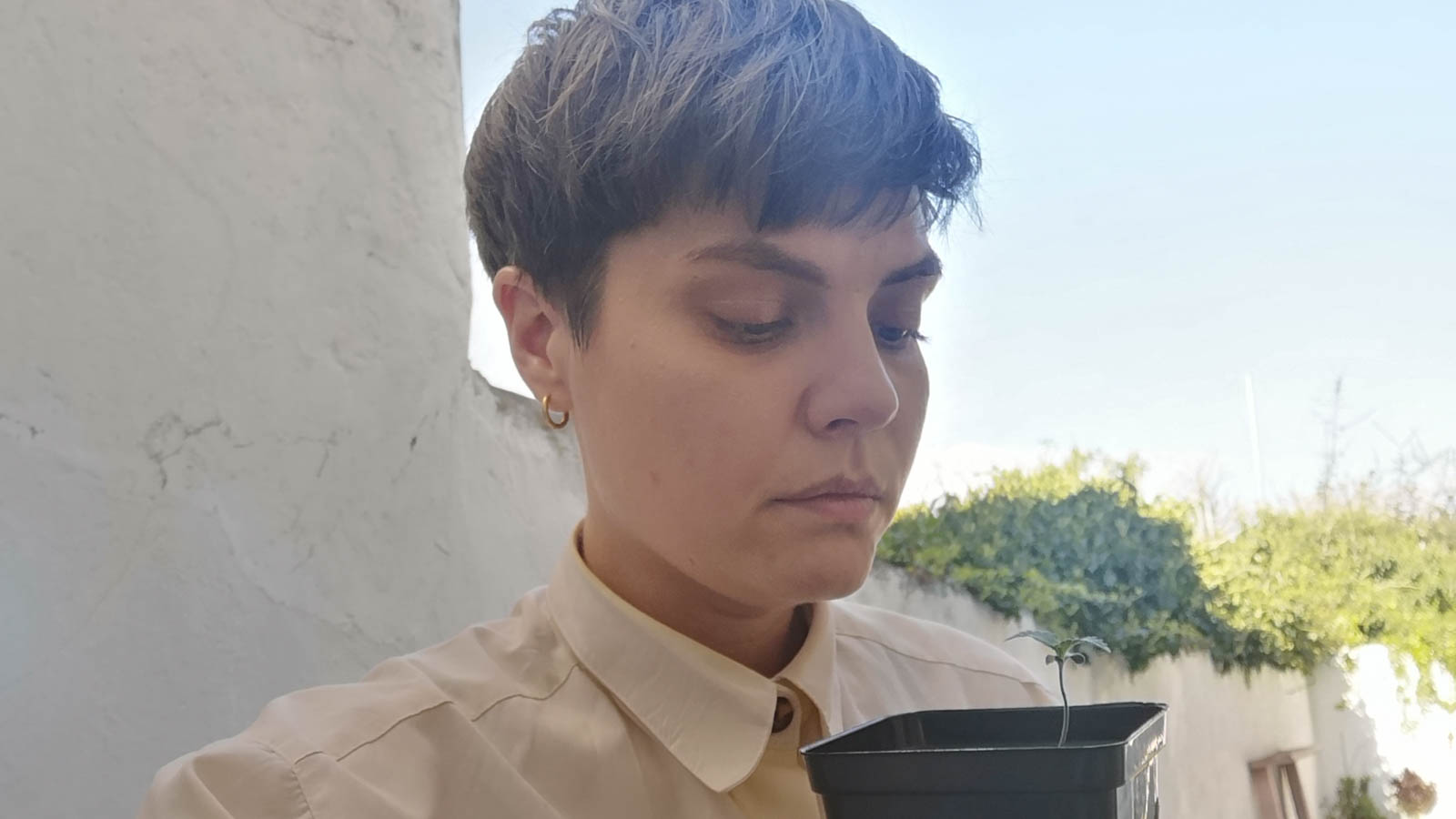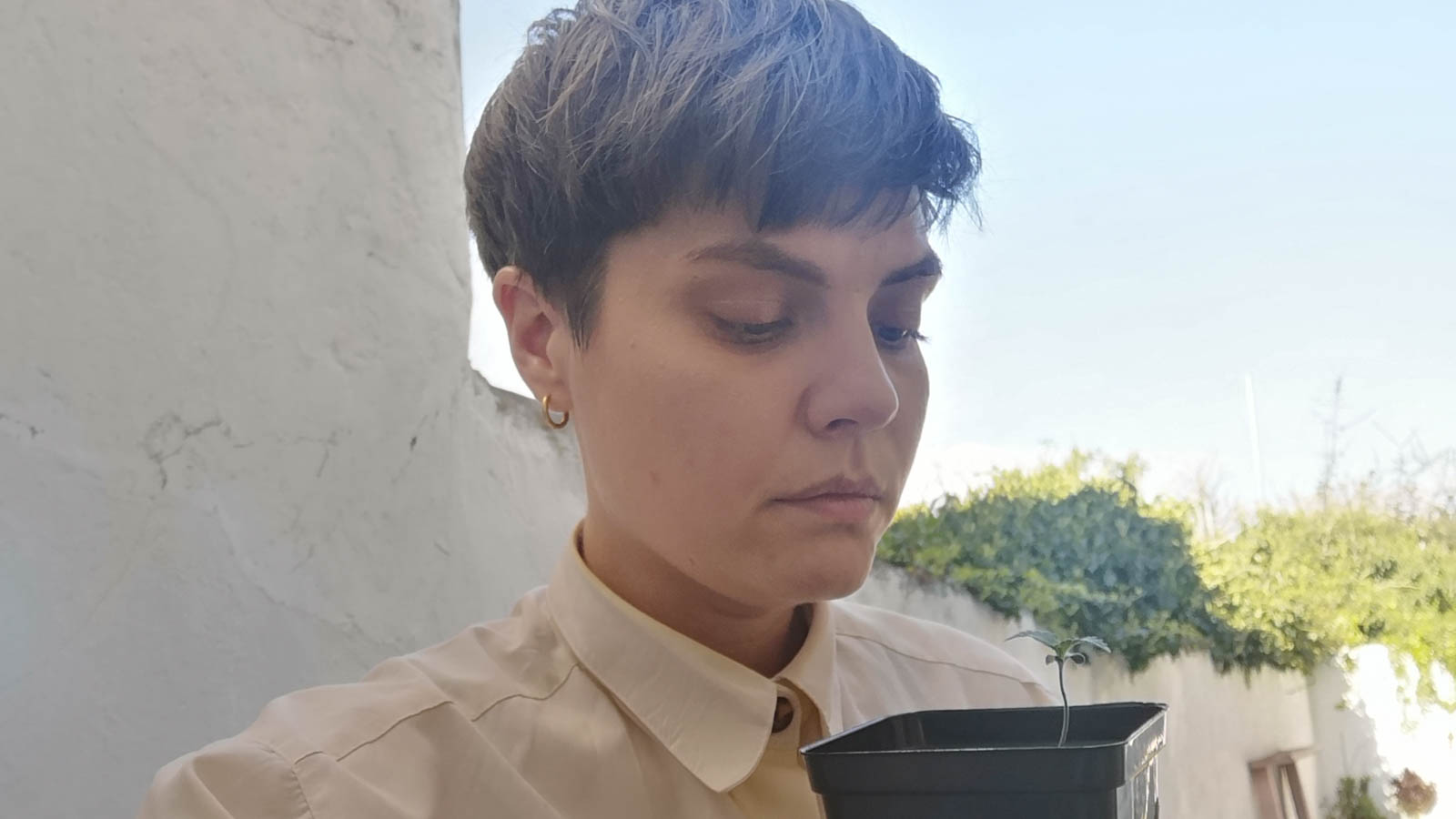
When Carly Barton became the first adult patient in the United Kingdom to receive a medical cannabis prescription to manage her chronic fibromyalgia pain, she declared that her need for opioid-based painkillers was about to be over.
However, when Barton learned that her prescription would cost her 1,400 pounds, or about US$1,814, per month and would not be covered by England’s traditionally generous National Health Service (NHS), she decided she had no other choice but to grow her own, despite warnings from the police that she was “openly breaking the law,” and that they “would not look the other way.”
“The whole country is in the same situation,” Barton said in a phone conversation. “If you can afford a couple of thousand pounds a month, then you’re classified as a patient. If not, you’re regarded as a criminal. It’s beyond ridiculous.”
Cultivation of marijuana in England can carry up to a 14-year prison sentence.
That has not stopped the 32-year-old, who taught sculpture at Brighton University for three years until the pain became too much.
At 24, while in the third year of writing her dissertation, Barton suffered a stroke, after which she was diagnosed with significant nerve damage, post-stroke neuropathy, and fibromyalgia. She was taking up to two dozen pharmaceutical painkillers, including liquid morphine and a fentanyl patch, which did little to control her pain, she said, while the side effects kept her in bed and unable to work for nearly six years.
“The first time I tried medical cannabis, I was completely pain-free for the first time in years,” Barton said. “I was able to get around town, not in a wheelchair, and to medicate freely without looking over my shoulder. I am not going back to any of that, especially not to the wheelchair.”
Barton would have to break the law.
“On April 9, I planted my first seed then I went into the Sussex police station to tell them,” Barton said. “I wrote and signed a paper and gave it to them stating that I’m growing four plants — the exact strain that I was prescribed for my condition. And basically, I said ‘come and arrest me if you want.’ ”
The police officer on duty that day looked stunned. “She said ‘This has never happened before. You’re putting us in a very difficult position.’ I told her that I, too, am in a very difficult position. I don’t want to break the law or start trouble. I’m trying to come up with a solution.”
Sussex Police Media Officer Andy Freeman said in an email that cannabis possession cases can be dealt with by “conditional caution or community resolution … .” And that “each case is dealt with on its individual merits taking into account our overall policy.”
To date, the Sussex police have not moved against Barton.
Sussex Police and Crime Commissioner Katy Bourne told Barton that her hands were tied unless there was a change of policy from the top — the British Home Office, which oversees visas, immigration, and law enforcement. So that’s where Barton went next.
On May 4, 2019, Barton sent an open letter to British Home Secretary Sajid Javid, who oversaw the UK’s legalization of medical cannabis in 2018 following the high-profile cases of Billy Caldwell, 13, and Alfie Dingley, 7, whose mothers’ struggle to legally treat their epileptic sons with medical marijuana stayed in the headlines in England for months.
“As law-abiding citizens, I and the undersigned have no option for safe access to our medicine, other than to grow cannabis in our own homes,” Barton wrote to the Home Secretary.
Britain’s unclear guidelines on medical marijuana have made it difficult for people like Barton to get their prescriptions filled and paid for by the NHS, regardless of physicians’ recommendation to treat any of four qualifying conditions: chronic pain, nausea caused by chemotherapy, spasticity connected to multiple sclerosis (MS), and epilepsy.
What’s the problem?
Axel Klein, a social anthropologist and senior research associate of the Global Drug Policy Observatory of the U.K.’s Swansea University in Wales, said cannabis reform has been inherited and perpetuated by successive British governments that have lacked the will to do anything about it.
“In a way, cannabis is regulated … it’s just that the regulation has been handed over to criminals in something that I call ‘mal-regulation,’ where it achieves the maximum harm,” said Klein.
In a way, cannabis is regulated … it’s just that the regulation has been handed over to criminals in something that I call ‘mal-regulation,’ where it achieves the maximum harm. — researcher Axel Klein Click To Tweet
Klein explained that the NHS will cover the cost of cannabis only if a local panel approves a prescription, but that often those who sit on the panels do not fully understand patient needs.
“Also, the NHS is cash-strapped and people who need cannabis don’t just need it for a little while,” Klein told Weedmaps News. “For example, if you have M.S., you don’t just use it several times. You may need it for the rest of your life.”
Klein pointed out that the U.K. is one of the world’s largest producers and exporters of cannabis products, which makes the problem for British patients all the more frustrating.
“Those in need are being forced to turn their homes into a crime scene and risk being raided by the police,” Klein said. “If you can afford to pay for a prescription, you’re fine. Medical cannabis is not for the poor.”
The expense and difficulty of finding medical marijuana in her home means U.K. resident Carly Barton cultivates her own small crop. (Photo courtesy of Carly Barton)
Klein said that his native Germany has an estimated 40,000 to 60,000 medical marijuana patients whose prescriptions are covered by the country’s Government Health Insurance System, though laws restrict home cultivation. Yet the UK lags behind. Professor David Nutt at Imperial College London noted in a recent essay in the British medical journal BMJ, that “still only a tiny number of children with severe juvenile epilepsies are being treated.”
Klein estimated that fewer than 10 people, mostly youngsters, are receiving medical cannabis through the NHS.
What’s to be done?
Notwithstanding her showdown with the police and publicly demanding the attention of the Home Secretary, Barton has a plan and it’s already in effect.
Barton set up a patient registry known as Carly’s Amnesty on April 24, 2019, for patients with medical conditions listed under the UK’s medical marijuana guidelines, who also are unable to afford their prescription and are considering whether to grow their own.
“It’s a network for safe access where patients can sign up, grow their own medicine, and receive amnesty from prosecution,” Barton said.
Barton explained that authorities will be made aware of individual dosage requirements and given access to the data collected by the registry in the event they want to arrange a visit to ensure that a patient is compliant. Patients can grow up to a maximum of nine plants.
Barton is working with lawyers, academics, medical professionals, think tanks, and government departments to work through the details of the amnesty scheme.
“This is happening … with some common sense and the promise that if the police come to inspect a patient’s home, they’re not all tactically geared up for a raid but rather they knock on the door, come in, have a cup of tea, count the number of plants then leave.”
As of May 10, 2019, Carly’s Amnesty already had some 300 people signed up.
“We also have a similar number of patients expressing interest who say they’re willing to sign on once we have all agreed on the amnesty,” Barton said. “There are understandably some nerves to get over.”
Featured Image: Carly Barton, of Sussex, is in legal limbo for cultivating medical cannabis, even though she is the first adult patient in the United Kingdom to receive a medical cannabis prescription to manage her chronic fibromyalgia. (Photo courtesy of Carly Barton)















